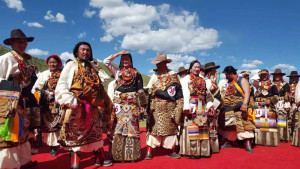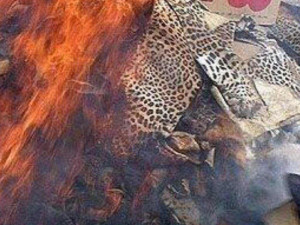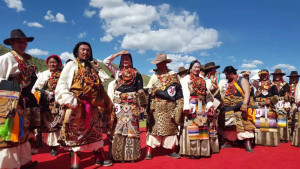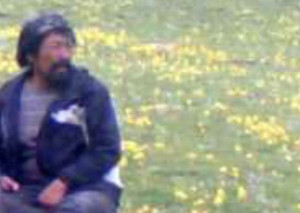China enforces animal skin attire on Tibetans in restive Driru county on PLA anniversary
DHARAMSALA, Aug 7: In the run-up to the 88th anniversary of the founding of China’s Peoples Liberation Army on August 1, Chinese authorities ordered Tibetan residents of Driru county in Nagchu prefecture of traditional Tibetan province of Kham to comply with four guidelines, failing which, cultivation of caterpillar fungus (Yartsa Gunbu), which is the main source of income for the local Tibetans, will denied for five years.
The four guidelines were 1) Annual festival must be held to commemorate the anniversary 2) Traditional songs and dances must be performed on stage 3) Performers must wear costumes decorated with wild animal skins 4) All residents of the county must attend the festival.

“The order made on July 25 stated that if the Tibetan residents fail to comply with the guidelines, they will be denied to cultivate caterpillar fungus, striking at the source of their livelihood to coerce them into following the guidelines,” Samdup, a native of Driru county currently living in Europe told Tibet Express.
The authorities forced the Tibetan artists to perform traditional song and dance performances on stage wearing animal skin costumes, which were brought along by the authorities themselves.
As Tibetans in Driru rely on cultivation of caterpillar fungus as their main source of income, Chinese authorities have been using cultivation of the prized fungus as a useful tool to force the Tibetans into activities against their wishes.
“If cultivation of Yartsa Gunbu is denied, it affects the livelihood of the Tibetan residents of Driru. Chinese officials use Yartsa Gunbu as a political tool to enforce the Tibetans into carrying activities against their wish,” Samdup quoted a local Tibetan as saying.
In recent years, Driru county has been a hot bed for fearless protests against the Chinese rule, including self-immolations that made Driru county a cause of concern for the Chinese government who fear that if the area is not brought under control, the resistance and ‘instability’ may spiral into the neighbouring counties and later further into other Tibetan areas.
To bring stability into the area, China has resorted to measures such as compulsory ‘political education’ for the residents, forcing Tibetans to hoist Chinese flag, restricting communication channels and lately, denying Tibetan residents to cultivate Yartsa Gunbu if they do not fall in the line.

After His Holiness the Dalai Lama advised Tibetans not to use clothes decorated with wild animal skins at the 31st Kalachakra teachins held in South India, Tibetans in Driru voluntarily burned all the animal skin clothes in their possession.
On Sep 28, 2013 protested against Chinese flag campaign requiring Tibetans to hoist the Chinese flag from their homes and instead threw the flags into the river. Around 40 Tibetans were arrested by Chinese paramilitary forces leading to a 24-hr hunger strike by the local Tibetans in front of the Chinese government office.
Driru residents have shown great courage in the face of Chinese repression resulting in the arrests and sentencing of a number of writers, poets, musicians as well as learned Buddhist scholars and teachers.




